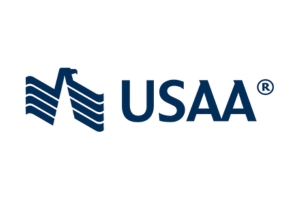Insurance Rebating: Insurance Terms Explained (2026)
Delve into the world of rebating and understand its effects on the insurance industry. Learn about the legal framework surrounding rebating, the ethical dilemmas it presents, and how it can impact consumers' insurance choices. Our comprehensive analysis equips you with the knowledge needed to navigate the complex landscape of rebating in insurance. Stay informed and make empowered decisions about your insurance coverage.
Read more Secured with SHA-256 Encryption





Find the Lowest Car Insurance Rates Today
Quote’s drivers have found rates as low as $42/month in the last few days!




Table of Contents
Table of Contents


Insurance and Finance Writer
Maria Hanson grew up with a unique passion and understanding of both the automotive and insurance industries. With one grandfather in auto mechanics and another working in insurance, you could say automotive insurance is in her blood. Her love of research and finance serves her well in studying insurance trends and liability. Maria has expanded her scope of expertise to home, health, and life...
Maria Hanson


Licensed Agent & Financial Advisor
Schimri Yoyo is a financial advisor with active life and health insurance licenses in seven states and over 20 years of experience. During his career, he has held roles at Foresters Financial, Strayer University, Minnesota Life, Securian Financial Services, Delaware Valley Advisors, Bridgemark Wealth Management, and Fidelity. Schimri is an educator eager to assist individuals and families in ...
Schimri Yoyo
Updated October 2024
Welcome to our comprehensive article on “What is rebating in insurance?” In this informative piece, we delve into the concept of rebating, which refers to the practice of offering incentives or inducements to potential insurance customers as a means of gaining their business.

- Insurance rebates occur when a company or agent offers a cash rebate or gift in exchange for an insurance sale
- Rebating is illegal in the insurance industry, and customers who knowingly participate in the practice may face fines as a result
- State laws may vary in their definition of what constitutes rebating and may make certain exceptions to the rule
To ensure you have the best insurance coverage at the most competitive rates, enter your ZIP code now and compare rates from top insurance providers in your area. Empower yourself with knowledge and make informed decisions about your insurance needs.
What is rebating in insurance?
So, what’s rebating in insurance? Companies often offer discounts on their products or services to incentivize a purchase. This is called rebating. It’s a common marketing technique that makes a product or service seem more appealing by cutting the costs customers have to bear.
In insurance, the same concept applies, albeit slightly modified. Insurance companies or agents use rebates to encourage potential customers to buy a policy.
For example, you might see a “rebate” taking place when commissions that are meant for the agent are given as additional compensation to the customer in exchange for a policy purchase.
The agent or company might also promise gifts in exchange for a purchase — a practice referred to as “inducement” (still a form of rebating). For example, the agent might promise a free vacation or trip in exchange for you buying the policy.
Free Auto Insurance Comparison
Compare Quotes From Top Companies and Save
Secured with SHA-256 Encryption
Is rebating in insurance legal?
Despite the prevalence of rebates in other industries, it is very much illegal in the insurance industry.
Rebating is strictly prohibited by both the Federal Crop Insurance Act and the Standard Reinsurance Agreement. The Risk Management Agency takes the prohibition of rebating seriously and enforces it as strictly as possible.
These laws prohibit insurance companies and agents from offering rebates to sell their policies. Those who engage in rebating with clients may face serious consequences, including fines and license revocation.
The Issue With Rebating
While legislation governing rebating varies by state, the overall objective is to prevent insurance providers from unfairly marketing products to consumers. This practice is not regarded favorably by insurance regulators because it leads to unfair competition and might harm consumers in the long run.
Here are some ways that rebating can cause problems:
- Large companies with lots of liquid capital can use rebating to monopolize the market and inch out smaller players in the process. In the long term, this results in higher prices and lower benefits for consumers.
- There is a severe lack of transparency in the rebating process, which may lead to unfair price disparities between different-sized insurers and intermediaries.
- Rebating can lead consumers to make inappropriate insurance purchases that do not suit their needs.
- Companies that engage in excessive rebating may end up not having enough cash on hand to pay out claims to policyholders.
Ultimately, there is no true win-win outcome. Rebates have to come from somewhere.
Presently, insurance rates are set up in such a way that agent commissions have been factored into the total cost. As a result, when potential buyers receive rebates from agents, naturally, it raises the question of where these rebates are coming from. State regulators are concerned that consumers will end up having to foot the bill for these incentives.
Examples of Rebating in Insurance
It’s easy to get confused about what counts as rebating and what doesn’t. There’s a lot of ambiguity. Allow us to illustrate.
Imagine you’re having brunch with a prospective client. It’s good food, and you’re both having a good time. The check arrives, and you joke, “I’ll cover the bill if you take out a policy!”
In this context, it’s obviously a playful joke. You are not coercing someone into buying insurance. But the question remains: Where do you draw the line?
The following are some common examples of rebating in insurance. These scenarios will hopefully help you determine when a rebate is being implied in an insurance purchase so that you can avoid it.
An example of rebating is when the agent offers a direct cash rebate (usually from their commissions) in exchange for the purchase of a policy. An example of rebating would be when the agent offers gifts in exchange for a policy purchase, such as tickets to events or expensive dinners.
How to define rebating? To clarify further, let’s define rebating in insurance. Rebating refers to the practice where an agent offers a client something of value not stated in the policy as an inducement to purchase the insurance. The definition of rebating in insurance typically includes offering cash or gifts to influence the purchase decision.
For instance, an example of rebating in insurance might include offering a portion of the agent’s commission back to the client. The insurance rebate meaning often revolves around this direct financial incentive. Another example of rebating would be offering a client expensive gifts or other perks for purchasing a policy.
Is rebating illegal? The answer varies. Is rebating illegal in all states? No, the laws differ by state. For example, in Florida, agents are allowed to engage in rebating if they meet specific legal requirements. However, insurance rebating laws are strict in many states to prevent unfair practices.
Understanding what constitutes an illegal inducement in insurance is crucial. The insurance rebating definition includes any inducement to insure meaning anything offered to persuade someone to buy insurance, which is not included in the policy.
In summary:
- Definition of a rebate in insurance: Offering something of value not stated in the policy to induce the purchase.
- Insurance rebating definition: The practice of offering inducements to buy insurance.
- Example of rebating in insurance: Offering a cash rebate from commissions.
- Is rebating illegal? It depends on state laws.
- In Florida, agents are allowed to engage in rebating if they follow the state’s regulations.
Recognizing and understanding these distinctions helps navigate the complexities of insurance sales and ensures compliance with insurance rebating laws.
Free Auto Insurance Comparison
Compare Quotes From Top Companies and Save
Secured with SHA-256 Encryption
Rebating Laws by State
In the United States, 48 of 50 states do not allow insurance companies to rebate to consumers, with limited exceptions. Florida and California are the only two states where rebating is permitted, though insurers still need to follow strict guidelines.
Each state also has its own definition of what exactly constitutes rebating. In most states, a cash return of the agent’s commission is considered rebating. Some states also recognize gifts or services in exchange for purchasing an insurance policy as a form of rebating, while others do not.
If discovered, some jurisdictions will handle the situation differently. Almost always, the company or agent will be held liable for violations. Other times, the customer is considered an offender if they knowingly participate in the practice.
The most important thing you can do as a customer is to ensure that you’re in compliance and not at risk of incurring fines. To find out what constitutes insurance rebating in your area and insurance rebating laws by state, you will need to speak with your state’s regulators.
Exceptions to Insurance Rebating
There are some limited exceptions to rebating regulation. General exceptions include:
- Promotional items with a value of $100 or less. Any promotional item with a value less than $100 is not considered a gift and is therefore not a rebate. Things bearing a company’s logo, such as office supplies, stationery, bags, or other office merchandise, usually fall under this category.
- Raffles or contests. Insurers and insurance producers are allowed to organize raffles, contests, or promotional programs with prizes valued at $100 or less. Entry must be made available to all policyholders and prospective customers without a purchase requirement.
- Referral fees. Under some state laws, it is legal for a licensed agent to pay a referral fee to another party. This comes with the caveat that the customer and potential customer will not discuss specific insurance policy terms or conditions. In addition, the fee must not be contingent on the purchase of insurance. In general, consumers won’t benefit from this exception. Instead, this system allows licensed agents to pay for leads provided by other professionals such as real estate agents, car dealers, etc.
You can find more information on state exceptions by contacting your state’s insurance regulator or visiting their website.
Conclusion
Understanding the various aspects of rebating in insurance is crucial for both agents and policyholders. The meaning of rebating and the rebating definition in insurance involve offering incentives not specified in the policy to induce someone to purchase insurance. This practice, known as premium rebating, can distort fair competition and is often considered illegal inducement insurance. The rebate insurance definition includes any financial or material inducements offered to influence the purchase of a policy.
The rebate meaning in insurance extends to life insurance rebating, where agents may offer part of their commission or other incentives to clients. Rebating in life insurance, or rebating life insurance, is similarly regulated to maintain fairness. The rebating insurance meaning encompasses all such practices that provide unauthorized benefits to policyholders.
The act of rebating is considered a breach of regulatory standards, though in Florida agents are allowed to engage in rebating if they adhere to specific legal requirements. Understanding the rebates in insurance, including the rebating insurance term, helps in comprehending the full scope of rebating insurance definition and rebating insurance examples.
In summary, it’s important to understand the definition of rebating in insurance and the meaning of rebate in insurance. Rebating in insurance means providing inducements outside the policy terms, which is regulated to prevent unfair practices. The meaning of ‘inducing to insure’ underlines the importance of maintaining transparent and fair practices in the insurance industry.

Frequently Asked Questions
What are rebates in insurance?
Rebates in insurance refer to the practice of returning a portion of the premium or offering other incentives to the insured as an inducement to purchase insurance. This practice is often regulated or prohibited to ensure fair competition and consumer protection.
What does rebating mean?
What does rebating mean in insurance? Rebating means offering something of value, such as cash, gifts, or services, to a prospective insurance buyer as an inducement to purchase a policy. It involves providing incentives that are not specified in the insurance contract.
What is a rebate in insurance?
A rebate in insurance is an inducement offered to the policyholder or potential policyholder that is not included in the insurance contract. This can include cash, gifts, or other benefits provided to influence the purchase of an insurance policy.
What is an example of rebating?
What is an example of rebating in insurance? An example of rebating is when an insurance agent offers a portion of their commission back to the policyholder as a financial incentive to purchase a policy. For instance, promising to return a part of the premium payment to the client.
What is considered rebating in insurance?
Rebating in insurance is considered any practice where the agent offers something of value not specified in the insurance policy to induce the purchase. This includes cash rebates, gifts, services, or any other form of incentive.
What is insurance rebating?
What is rebate in insurance? Rebating in insurance terms is the practice of offering incentives such as cash, gifts, or other benefits to prospective clients to persuade them to purchase an insurance policy. It is regulated to prevent unfair competition and protect consumers.
What is rebating in life insurance?
What is rebating insurance? Rebating in life insurance involves offering incentives, such as a portion of the agent’s commission or other valuable items, to a prospective buyer to induce the purchase of a life insurance policy. This practice is often subject to strict regulatory controls.
What is the definition of rebating?
The definition of rebating is the practice of offering something of value not stated in the insurance policy to induce someone to purchase that policy. It often includes financial incentives or gifts provided by the insurance agent or company.
Which of the following is an example of rebating?
An example of rebating is an insurance agent offering a cash rebate from their commission to a client as an incentive to purchase a policy.
Which of the following is not considered rebating?
Offering a discount that is stated in the insurance policy or approved by the insurance company and regulator is not considered rebating. Rebating specifically refers to inducements not included in the policy terms.









